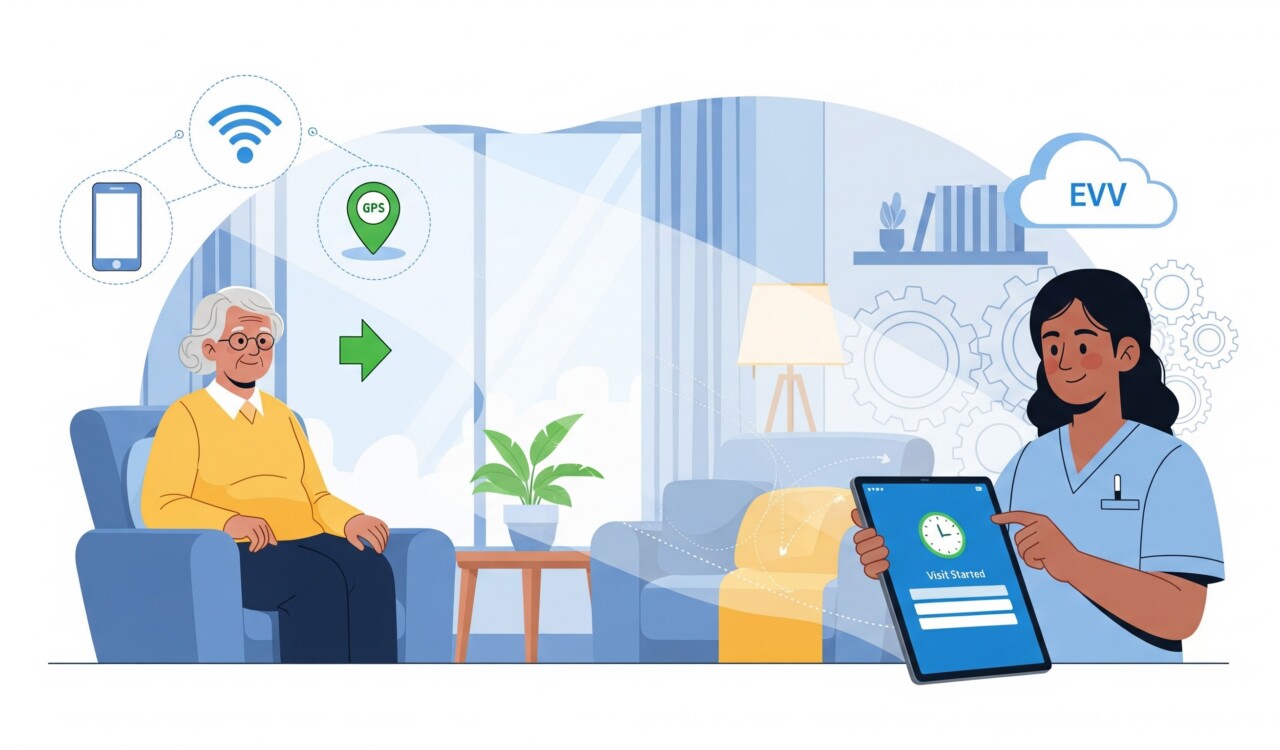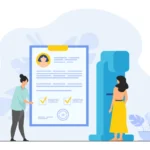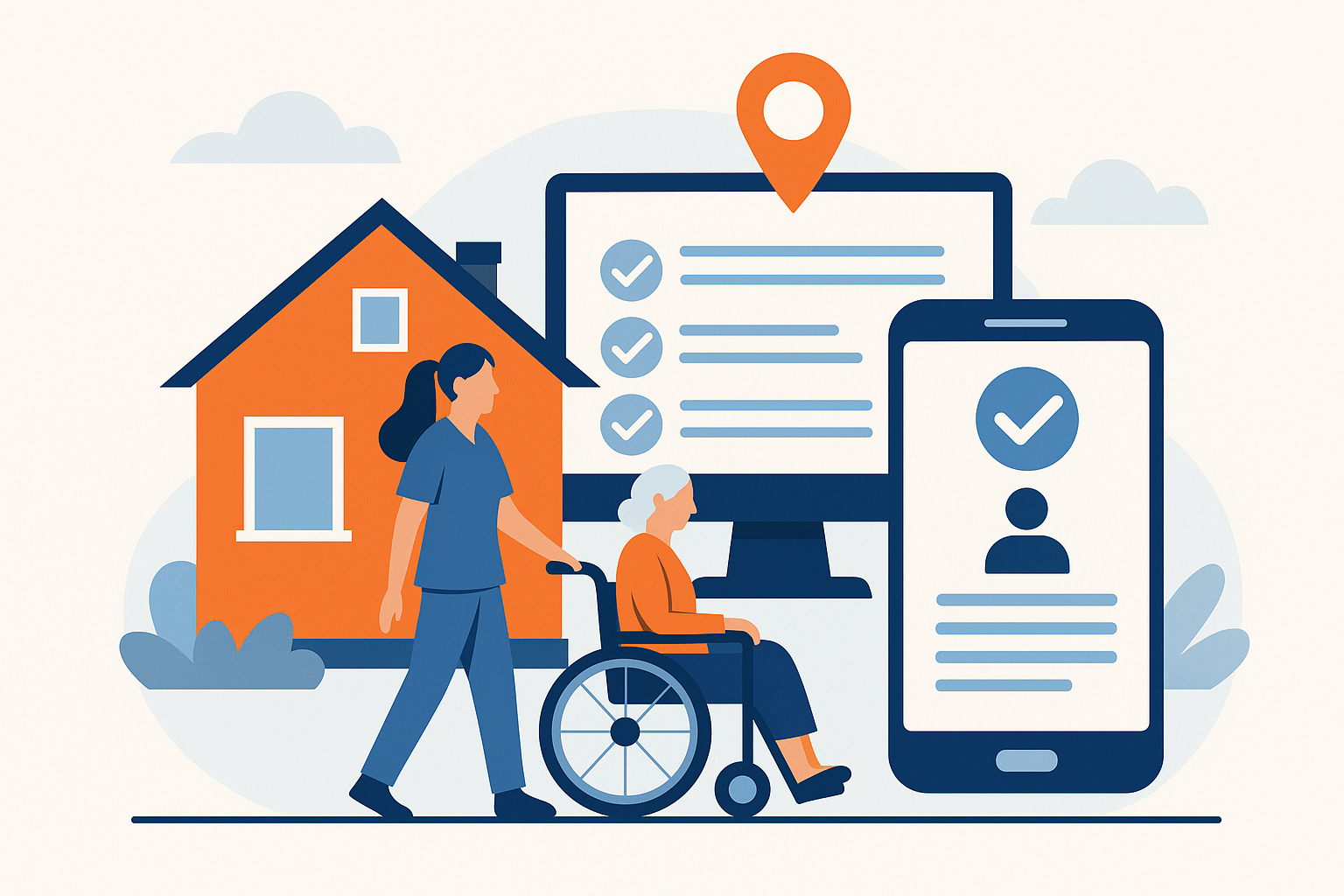Electronic Visit Verification (EVV) systems are a powerful opportunity to improve accountability, reduce fraud, and optimize workforce efficiency in home care operations.
Whether you’re navigating Medicaid mandates, onboarding caregivers, or scaling operations across states, the type of EVV system you choose matters.
This guide explains each EVV system type, compares their pros and cons, and helps you make an informed decision for your agency.

What Is EVV and Why Is It Mandatory?
EVV is a federally mandated system for verifying that home care services are delivered accurately. It captures:
- Type of service
- Patient and caregiver identity
- Date, time, and duration of service
- GPS or location of service delivery
The 21st Century Cures Act mandates EVV for:
- Personal care services (PCS) since Jan 1, 2020
- Home health care services (HHCS) since Jan 1, 2023
Non-compliance can result in Medicaid payment penalties of up to 1% annually.
Real-world challenge: Many agencies struggle with rigid or outdated EVV tools, leading to caregiver frustration, billing issues, or even staff turnover.
👉 allGeo solves this with a flexible, mobile-first EVV system that adapts to how your agency works.
5 Main Types of EVV Systems (and Which One is Right For You)
1. Telephony-Based EVV (IVR)
How it works: Caregivers call a toll-free number using the client’s landline to check in/out.
Pros:
- Simple setup
- No mobile device needed
Cons:
- Relies on landlines (used by <45% of US households)
- No GPS tracking, limited data
2. Mobile App–Based EVV (GPS + Geofencing)
How it works: Caregivers use an app (on a personal or agency-issued device) to check in/out. Location and visit details are captured in real time.
Pros:
- GPS/geofence for location accuracy
- Real-time updates, offline mode
- Enables shift notes, photos, mileage, alerts, signatures
Cons: - Requires device and mobile literacy
👉 allGeo includes offline EVV forms, shift alerts, job checklists, mileage tracking, and payroll sync.

3. Biometric EVV
How it works: Fingerprint or facial scan confirms identity via hardware installed at the patient’s home.
Pros:
- Highest fraud protection
Cons:
- Expensive to install and maintain
- Privacy concerns
Tip: Too rigid for most agencies, best for controlled facilities
4. Fixed Verification Devices (FOB / Beacon)
How it works: A code-generating device at the patient’s home is used to verify the visit time.
Pros:
- Doesn’t need phones or landlines
Cons:
- No GPS
- Maintenance and logistics overhead
5. Web Portal EVV
How it works: Caregivers manually log visits via a secure browser.
Pros:
- Simple fallback
Cons:
- Not real-time
- No GPS/location proof
6. Multimode EVV Systems (e.g., allGeo)
A multimode EVV system supports multiple verification methods like mobile app, IVR or geofence, allowing your agency to customize based on caregiver, client, or region.
✅ Why it works:
- Easily integrates with aggregators like Sandata and HHAeXchange
- Helps you scale across states and avoid compliance penalties
- Option of automating end-to-end workflow
EVV System Comparison Table
| EVV Type | GPS Support | Real-Time Sync | Setup cost | Best Use Case |
| Telephony (IVR) | ❌ | ❌ | Low | Clients with landlines only |
| Mobile App | ✅ | ✅ | Medium | Most modern agencies |
| Biometric | ❌ | ✅ | High | High-security, fixed location |
| Fixed Device (FOB) | ❌ | ❌ | Medium | Rural/no-connectivity clients |
| Web Portal | ❌ | ❌ | Low | Admin fallback or documentation |
| Multimode (allGeo) | ✅ | ✅ | Medium | All agency use cases |

Choosing the Best EVV System: What to Ask
- What tech do your caregivers and clients already use?
- Does your state mandate a specific EVV vendor or allow flexibility?
- Are you looking to integrate EVV with payroll, scheduling, or routing?
- Do you need offline capability, real-time alerts, or job forms?
If you said “yes” to any of these, a hybrid mobile-first solution like allGeo is your best bet.
Common EVV Implementation Challenges (and How allGeo Solves Them)
| Challenge | allGeo Solution |
| Landline no longer available | Supports mobile, web, and QR code check-ins |
| Caregivers dislike complex apps | Clean, user-friendly mobile app with minimal steps |
| Varying state aggregator requirements | Integrates with Sandata and HHAeXchange |
| Client homes in poor connectivity area | Offline mode with auto-sync when reconnected |
| Compliance errors or rejected claims | Automated data validation and timestamp tracking |
| Payroll bottlenecks | EVV + time tracking + payroll integrations (e.g., ADP) |
👉 Ready to Future-Proof Your Agency? Explore how allGeo fits your agency, your caregivers, and your compliance needs.



